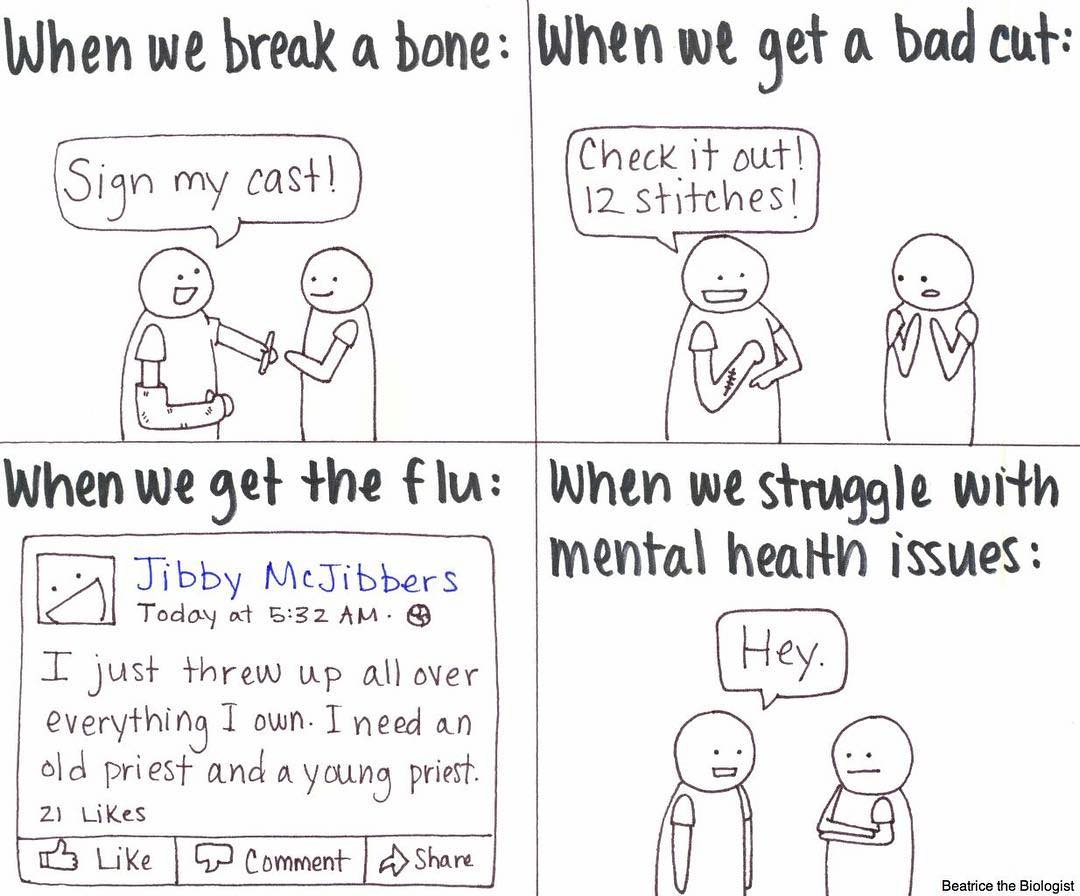
Invisible Illness
February 15, 2017 in Educate Yourself
Depression is not a “visible” health issue. It doesn’t announce itself to the world with a cast, or stitches, or vomiting. Depression is sneaky. It can be hard to talk about. Hard to define. It’s easy to say “I fell out of a tree and broke my arm,” there’s a cause and effect. Depression sometimes just happens – a chemical imbalance in your brain that may happen suddenly or over time.
Remember that just because it isn’t visible doesn’t mean that it isn’t real. You are worthy of treatment and of living a happy, fulfilling life.

Photo Credit: Beatrice the Biologist
What resonates most with you in this comic? Or today’s post? What can make depression and other mental illnesses more visible and less stigmatized?





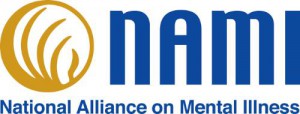



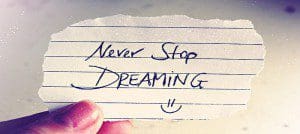


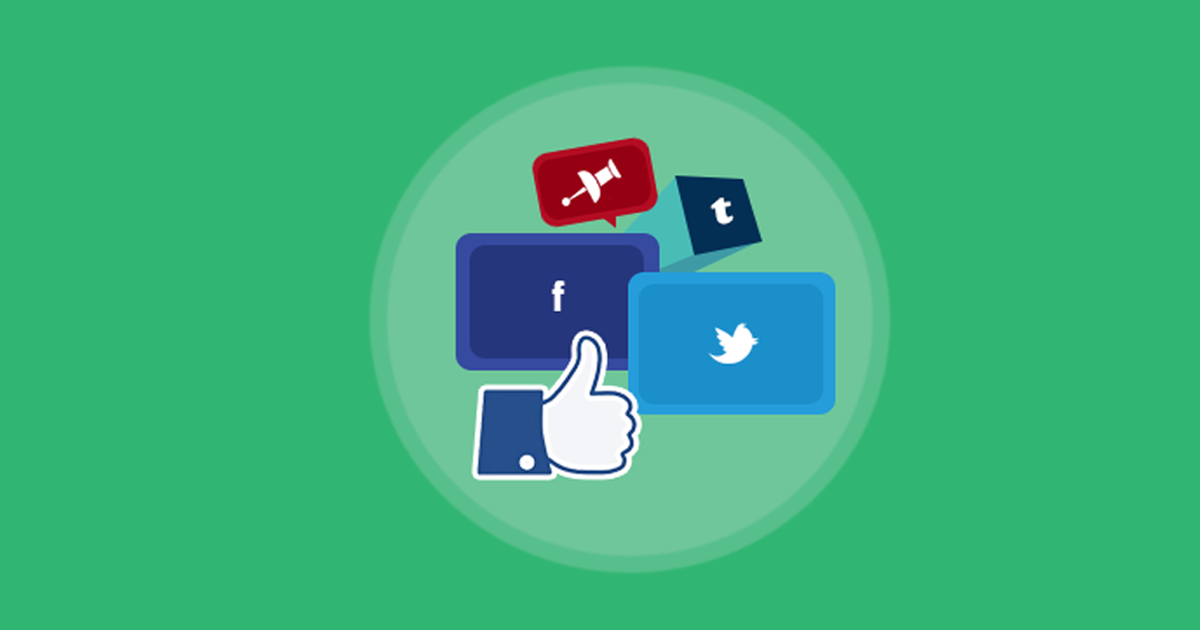
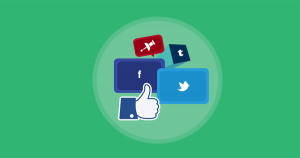
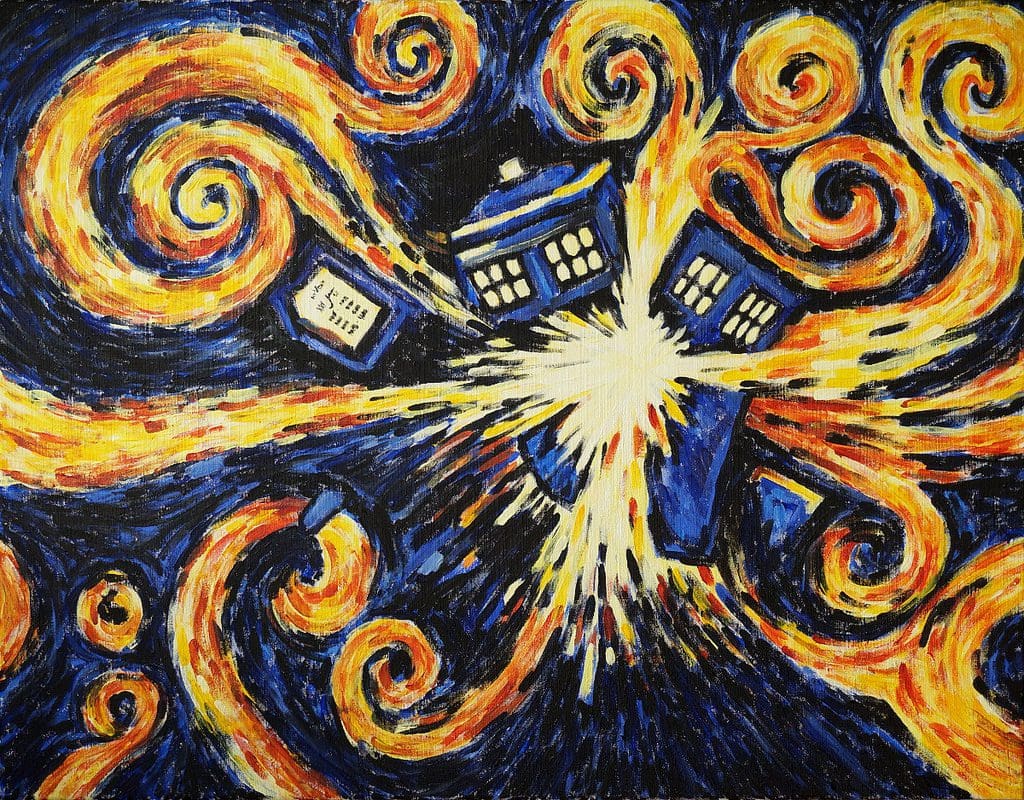



Recent Comments